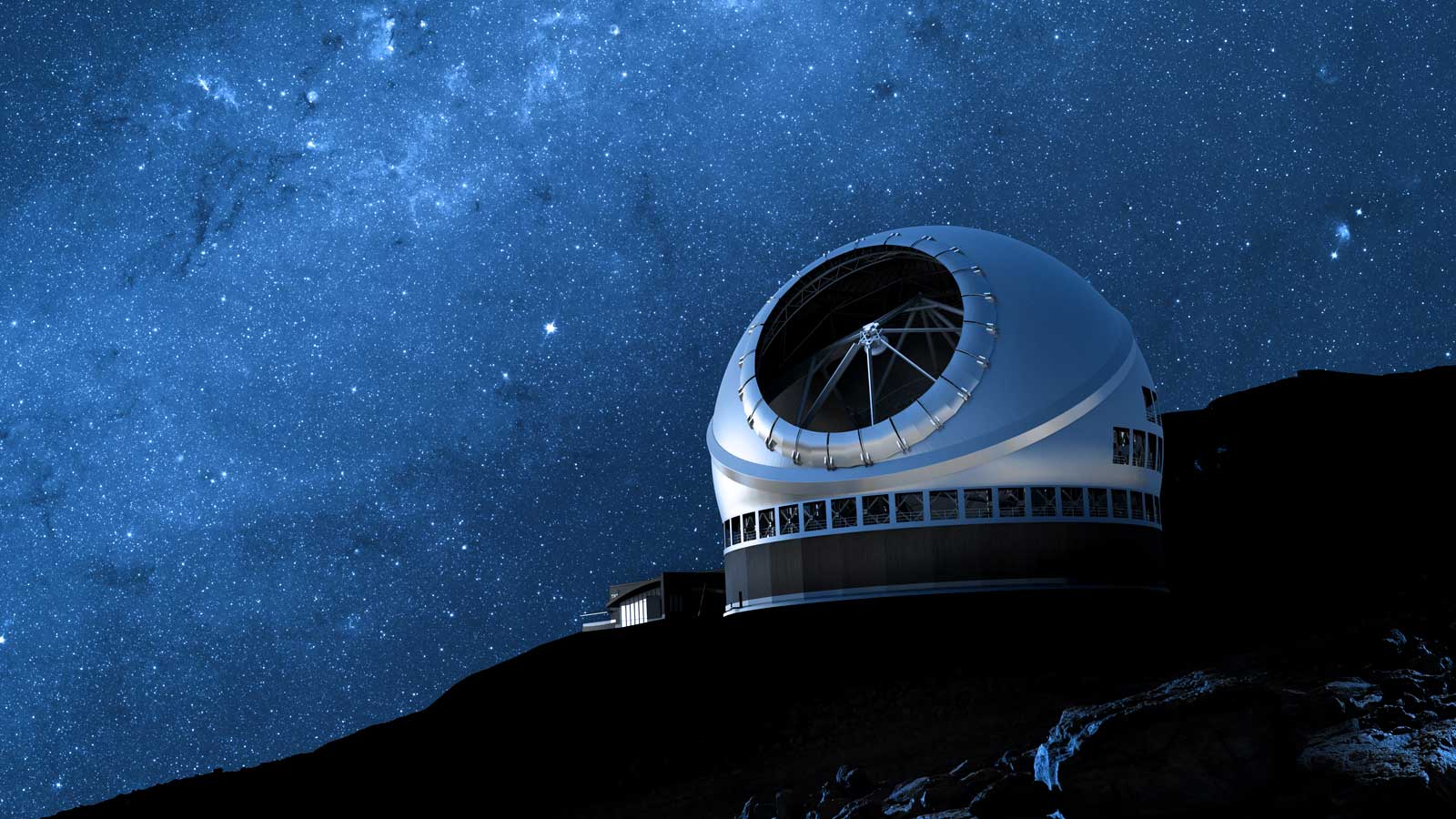
Registration is open for the 7th annual TMT Science Forum to be held on the campus of Xiamen University, in China. Scheduled for November 4-6, 2019, make your plans and come to attend the next TMT Forum and get an update on the Thirty-Meter-Telescope design and construction. For more information, please visit: https://conference.ipac.caltech.edu/tmtsf2019.
This image demonstrates the excellent capability of CILAS' deformable mirror (DM) to control the wavefront of the light that will feed TMT instruments after correction by TMT’s Adaptive Optics system NFIRAOS.
The Indian large optics facility will be dedicated to TMT primary mirror segment production: grinding, polishing, hexagonal cutting and support assembly mounting.
The new facility, which is close to completion, is located on the Hosakote campus of the Indian Institute of Astrophysics and is part of the Centre for Research and Education in Science and Technology (CREST). The facility will host the production of TMT mirror segments and high-tech optical equipment.
Front left to right: Mr. Arun Ramchandani, Vice President & Head, Product & Technology Development, L&T Defense, and Professor Jayant Murthy, Director, IIA.
First of 492 Primary Mirror Segment Support active mechanisms and sensors assemblies for the telescope at TMT Laboratory in California.
TMT Primary Segment Assembly rendering including the hexagonal segment, the segment support assembly and the fixed frame attached to part of the mirror cell in the lower portion of the figure.
TMT and L&T team participated in a kick-off meeting on 30 January 2019 to produce TMT Mirror Segment Support Assemblies.
In December 2018, India TMT signed a contract with L&T Company for the production of the Segment Support Assemblies, a major component of TMT’s main mirror hardware.
TMT-China Annual Assembly and TMT High Resolution Optical Spectrograph Instrument (HROS) Workshop.
Group picture of TMT Science Forum participants, held in Pasadena, California - December 2018.
Visit of TMT Technical Laboratory on December 10, 2018